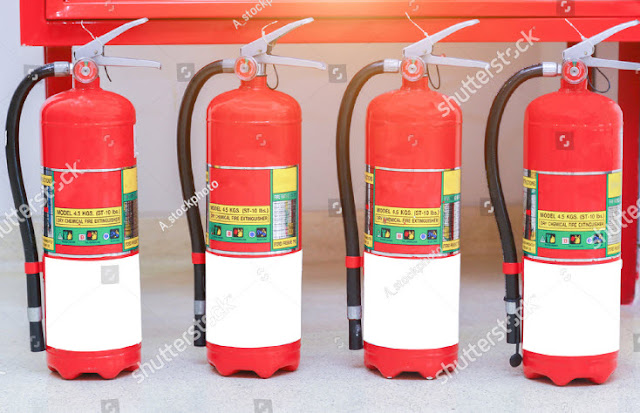Picking the correct kind of fire extinguisher can be a confounding errand in light of the many fire extinguisher types accessible. You ought to be extremely careful when you pick a fire extinguisher in light of the fact that each kind is expected to put out a fire caused by various materials.
Fire extinguishers are classified into a few classes to which they are utilized for. These extinguishers likewise have a numerical rating for their utilization. Class An extinguishers are utilized for conventional burnable materials. These incorporate paper, cardboard, plastics, and wood. The numerical rating found on this sort of extinguisher demonstrates the measure of water it can hold and the measure of fire it can quench. Class B fire extinguishers are uncommonly detailed to put out fires which care caused by combustible and flammable fluids like oil, gas, oil, and lamp fuel. The numerical rating for Class B extinguisher demonstrates the zone of fire in square feet it can quench.
Class C fire extinguishers put out fires which include electrical gear, including machines, outlets, wirings, and circuit breakers. When managing a class C fire, recall that water ought not be utilized to quench it on the grounds that the danger of an electric stun is incredible. Class C extinguishers have dousing specialists that are non-favorable and they don't have a numerical rating. A standout amongst the most widely recognized fire extinguisher types are those found in a synthetic research center. This sort is arranged as Class D fire extinguisher and is for fires including ignitable materials like sodium, potassium, magnesium, and titanium. Like Class C extinguishers, Class D extinguishers don't have a numerical rating and are to be utilized solely for Class D fires.
Beside these characterizations, fire extinguishers are likewise sorted by the dousing specialist utilized. Water extinguisher, otherwise called air-pressurized water extinguisher, is appropriate for class A fires as it were. Utilizing a water extinguisher on a Class C or Class D fire will possibly make the fire greater so be cautious while distinguishing the sort of fire before utilizing a specific extinguisher. A water fire extinguisher is loaded up with water and is pressurized with oxygen, therefore can be exceptionally unsafe in the wrong sort of circumstance. Possibly battle a fire with a water extinguisher on the off chance that you are certain that the fire is caused by common flammable materials as it were.
Dry concoction extinguisher is another kind of fire extinguisher and has an assortment of sorts. This kind of fire extinguisher is appropriate for a blend of class A, B, and C fires. Dry concoction extinguishers can be loaded up with froth or powder, pressurized with nitrogen. The standard kind of dry concoction extinguisher is the one which is loaded up with sodium bicarbonate and potassium bicarbonate. This is known as the BC extinguisher. The BC assortment leaves a somewhat destructive buildup which should be cleaned promptly to avoid further harm.
Another assortment is the ABC extinguisher which is a multipurpose dry substance extinguisher loaded up with monoammonium phosphate which is harming to electrical apparatuses. Contrasted with CO2 extinguishers, dry compound extinguishers have the favorable position since they leave a non-combustible buildup on the stifled materials.
Then again, CO2 extinguishers have the preferred standpoint over dry synthetic extinguisher with the end goal that they don't leave a hurtful buildup on an electronic gadget. These extinguishers contain carbon dioxide and are profoundly pressurized to stifle a fire.
These are the most well-known fire extinguisher types which you can base your choice from. Make certain to pick the most fitting one with the goal that you are secured.
Please visit our website for further information Fire Extinguishers.
